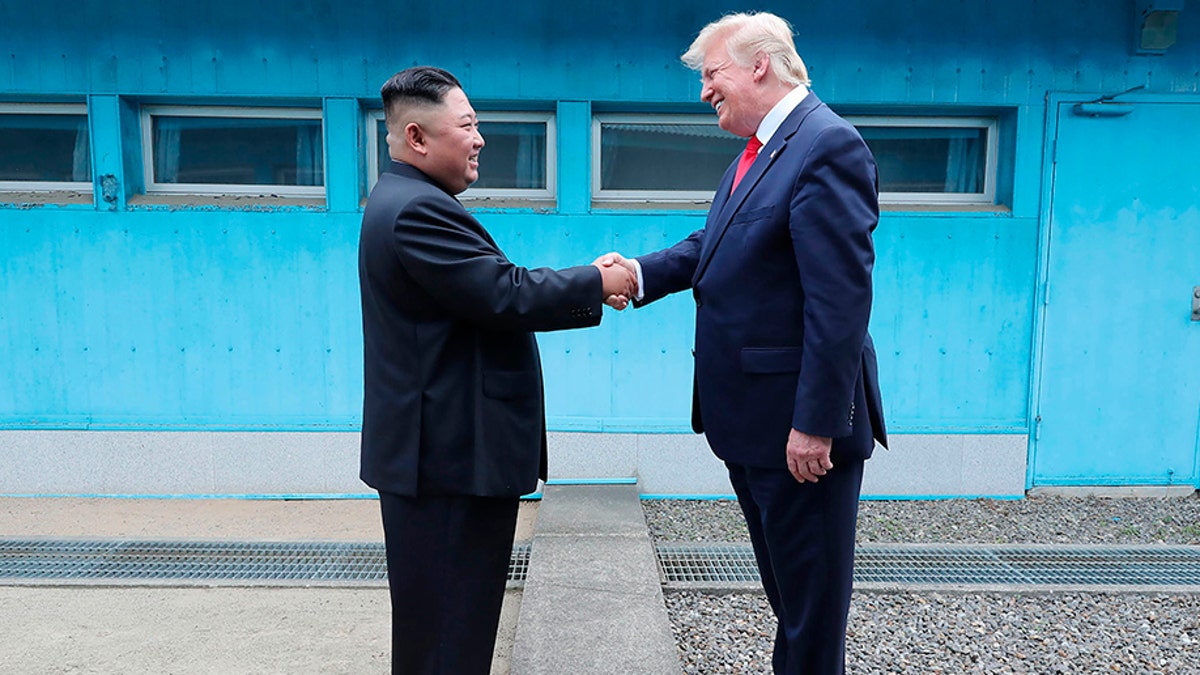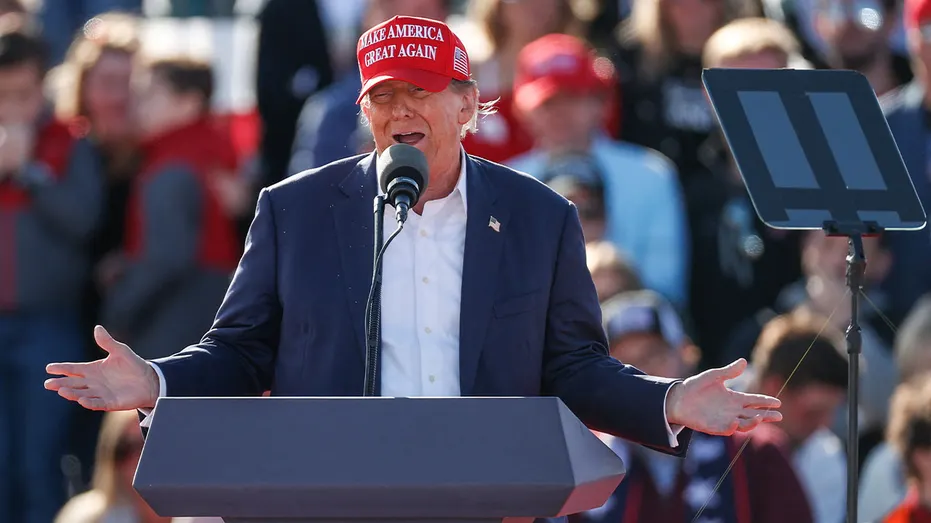Harry Kazianis: Increased US-North Korea tensions could return them to brink of nuclear war
North Korean leader Kim Jong Un seems to believe that President Trump broke a promise. That's a big problem – and in the worse-case scenario, it could return the U.S. and the North to the brink of a catastrophic nuclear war.

North Korean leader Kim Jong Un seems to believe that President Trump broke a promise. That's a big problem – and in the worst-case scenario, it could return the U.S. and the North to the brink of a catastrophic nuclear war.
It could all be due to a simple misunderstanding.
In the space of just a few weeks, we have gone from Trump meeting with Kim – after briefly setting foot in North Korea – to veiled threats from the North Korean regime that it may scrap its self-imposed ban on testing nuclear weapons and long-range missiles that could carry nuclear bombs to the U.S.
NORTH KOREA HINTS IT WILL LIFT NUCLEAR MISSILE TEST SUSPENSION
What seems to have happened is that Kim and his inner circle have interpreted words and phrases in a way that suits their interests – just as they have done before.
The result could be tragic – a renewed round of missile or nuclear tests that could trigger armed conflict. If all goes wrong, the conflict could escalate into a nuclear war.
If you read over the two statements Pyongyang released that started this latest dispute, it is clear North Korea is upset about joint U.S.-South Korea military exercises set to take place Aug. 2-25.
According to the Kim regime, the military exercises violate "the commitments made at the highest level." In other words, the North is saying Trump is breaking a promise not to conduct such exercises with the South.
In fact, the North Korean government claimed: "The suspension of joint military exercises is what President Trump, commander-in-chief of the U.S., personally committed to at the DPRK-U.S. summit talks in Singapore under the eyes of the whole world and reaffirmed at the DPRK-U.S. summit meeting in Panmunjom, where our Foreign Minister and the U.S. Secretary of State were also present."
The DPRK is the abbreviation for North Korea’s official name – the Democratic People’s Republic of Korea.
Multiple White House officials and South Korean officials who I’ve spoken with tell me they have no knowledge of any promise by President Trump to suspend the joint military exercises. In fact, as far as these officials know, this topic was not even discussed between Trump and Kim during their recent meeting.
Trump did make promises on the issue of the joint exercises in the past, but there are some important caveats that North Korea fails to mention. As a result, the North and the U.S. have big differences over what each side believes Trump has committed to.
During his Singapore summit with Kim last year, Trump clearly stated that "we will be stopping the war games" – criticizing joint U.S.-South Korea military exercises as expensive and provocative.
However, there was a major catch to such a promise. Trump never agreed to an open-ended agreement to indefinitely halt U.S. military exercises with South Korea. The U.S. president simply said he canceled one set of scheduled exercises because "under the circumstances, that we’re negotiating ... I think it’s inappropriate to be having war games."
But there are a few twists that could lead to some confusion on North Korea’s part. Parsing his exact words during a news conference at the Singapore summit, Trump expressed his support for a joint exercise freeze "unless we see future negotiations are not going along as they should.''
Unfortunately, what also complicates this matter is the fact that Trump stated he would put military exercises "on hold while negotiations with Pyongyang were ongoing."
Which is it?
Well, at least one thing is clear. Trump, true to his word, did suspend two large exercises. The U.S. Defense Department announced that it had "indefinitely suspended select exercises." But the only U.S.-South Korean exercises explicitly noted were one called "Freedom Guardian" and two "Korean Marine Exchange Program" trainings that were scheduled to occur in the three months following the summit.
The Defense Department statement also noted that any additional suspensions depended on "good faith" negotiations with North Korea, keeping in line with Trump’s promise. And, indeed, following the Hanoi summit, more exercises were suspended.
In coming days, all of this will come to a head. U.S. and North Korean working-level groups are set to sit down to craft an agreement based on foundational language and broad outlines stemming from discussions during the last two summits.
However, North Korea hasn’t confirmed a date or time for talks. With that being the case, it seems the U.S. will move forward with the joint military exercises with South Korea. That doesn’t break any pledge made by Trump. In fact, it honors the promise he made.
But following his latest meeting with Trump, it is possible that Kim thought Trump would suspend military exercises again, just as he did after the Singapore and Hanoi summits.
CLICK HERE FOR THE FOX NEWS APP
Trump could declare the joint military exercises are suspended in a tweet – provided that the North Koreans agree to a date and time in the next few days. That would avert a crisis and allow diplomacy to continue unimpeded.
In the meantime, talks between the U.S. and North Korea remain fragile. Every single word, no matter how seemingly inconsequential, matters. One false move – or in this case misinterpretation of what was or was not agreed to – could bring us back to 2017 and threats of nuclear war. I pray we never see such days again.
Adriana Nazarko, a Center for the National Interest Korean Studies summer associate, contributed to this op-ed.



